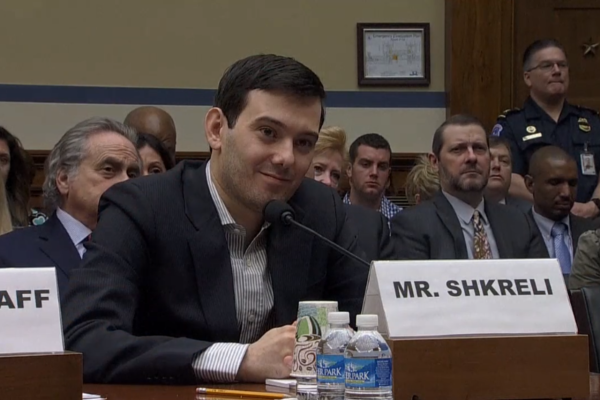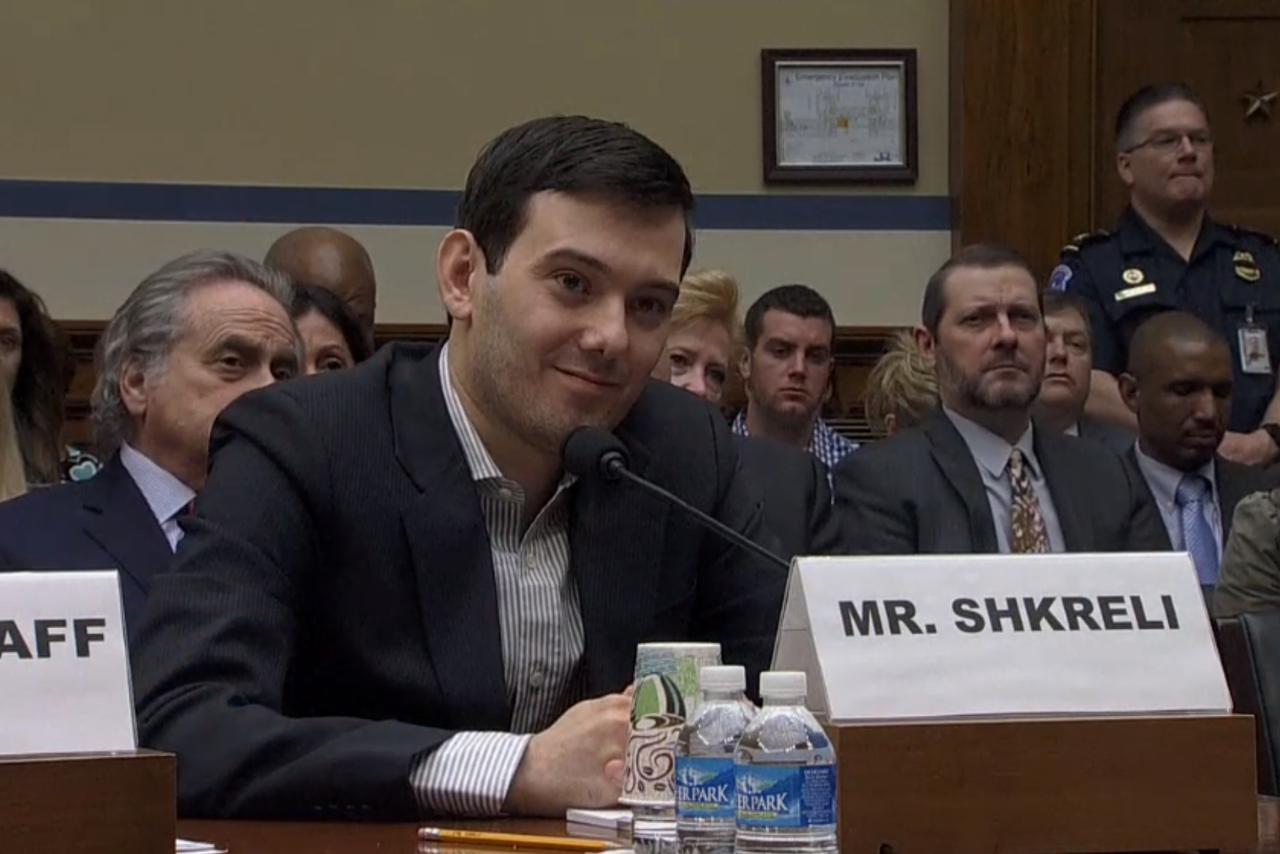Former Turing Pharmaceuticals CEO Martin Shkreli has been found guilty of three counts of securities fraud.
A New York City jury cleared Martin Shkreli on five other counts after five days of deliberations.
Martin Shkreli, 34, was on trial in relation to a drug company he previously headed, Retrophin, and a hedge fund he managed.
He was branded “the most hated man in America” in 2015 when his company hiked the price of a medication used by AIDS patients.
Despite facing prison after being convicted of two counts of securities fraud and conspiracy to commit securities fraud, Martin Shkreli professed himself pleased with the outcome.
Standing outside the court in Brooklyn, he said: “This was a witch hunt of epic proportions.
“And maybe they found one or two broomsticks but at the end of the day we’ve been acquitted of the most important charges in this case and I’m delighted to report that.”
Martin Shkreli, who attracted the nickname “Pharma Bro” and accusations of price gouging, is on trial in the US this week.
However, his case has little to do with the actions that won him notoriety.
Prosecutors allege Martin Shkreli committed fraud. They say he lied to investors and misused money to cover losses at different companies.
However, the much-hated drug price rise Martin Shkreli enacted as chief executive of Turing Pharmaceuticals was legal – and looks likely to remain that way, despite a push in the US for sweeping healthcare changes.
Daraprim Case: Martin Shkreli Invokes Fifth Amendment during Congressional Hearing
Daraprim Price: Martin Shkreli Asks for Immunity Before Congressional Hearing
Martin Shkreli became a symbol of pharmaceutical greed in 2015 when his company raised the price of Daraprim, a treatment for parasite infection that had been around for more than 60 years, from $13.50 a tablet to $750.
The move drew widespread criticism, including from President Donald Trump, who called Martin Shkreli “a spoiled brat” and said the industry was “getting away with murder”.
President Trump later told Congress that a goal guiding healthcare reform should be changes to bring down the “artificially high” cost of drugs.
Alarmed at the mounting pressure, several major drug companies earlier this year pledged to limit price increases to less than 10%.
However, healthcare shares rallied last week, as Senate and White House proposals for healthcare and prescription drugs came into focus without signs of a crackdown.
Those watching the political debates unfolding in Washington say they do not expect changes to address prescription drug costs this year.
“I don’t expect any dramatic action in the near term,” said John Rother, chief executive of the National Coalition on Health Care, which started a campaign against rising prescription drug prices two and a half years ago.
Turing’s pricing moves were extreme – but they were not isolated.
While overall generic drug prices declined between 2010 and 2015, according to a US Government Accountability Office (GAO) study of prices paid through the US’s Medicare government program – the cost of over 300 established generic drugs saw prices rises of 100% or more.
According to the Journal of the American Medical Association (JAMA), net spending on prescription drugs increased nearly 20% in the US between 2013 and 2015.
Elsewhere, in Britain, Australia, France and Germany, the government regulates prices.
However, in the US, where pharmaceutical companies are a powerful political force, companies set the cost, which subsequently gets renegotiated with insurers, suppliers and hospitals.
